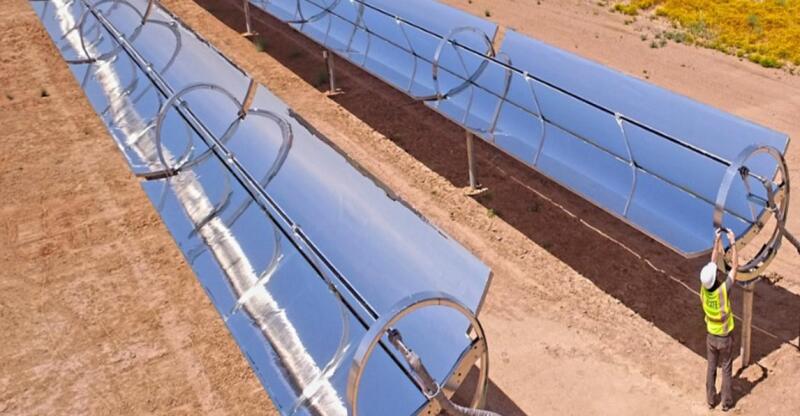Ten years as a patent attorney with ExxonMobil initially predisposed Gary Katz to see purification of “produced water” at oil wells as the market for the off-grid desalination startup he founded and bootstrapped in 2016, aiming to use the industry’s own wasted gas it flares onsite.
“We realized there was a big need to purify water at the oil and gas production sites and there’s quite a bit of waste natural gas you can use for heat,” Katz told SolarPACES in a call from Texas. But the US Department of Energy changed his focus when it put out a request for proposal for solar desalination innovations.
The 4-year-old startup Katz Water Technologies team won the first two stages of these DOE’s stepped series of awards to develop a concentrated solar thermal version of its off-grid desalination.
“It’s a multistage price competition. In the first round, we received a $50,000 cash prize, which allowed us to build a prototype; the second round we received the $250,000 cash prize. With that money, we’ve advanced and will continue to advance the technology tremendously," Katz said. "And now, for the next phase, in which we have to produce a shovel-ready project, if the DOE accepts it, we will be getting a $750,000 prize."
Industrial Waste Heat Was a Hard Sell
In the original grant application for renewable desalination, the startup mentioned solar thermal, but actually Katz had originally thought industrial waste heat energy would be the ideal source. But, as he noted ruefully, “As a startup you have to pivot to what the market will support. Even though industrial waste heat energy to run the purification system would in theory be free, the industrial plants we approached were not too keen about letting us test the idea on-site.”
“In many applications such as petrochemical refining and in chemicals and mining, the waste heat energy is definitely hot enough to purify water. The problem is convincing these industrial plants to allow us to retrofit or modify their heat exchangers, which could be expensive depending on the size. That was not an easy task," Katz said. "It just appeared that they didn’t show enough interest to actually pursue it any further. I haven’t given up on that, but I just am currently pursuing markets that are much more eager for this technology,” he added.
So, initially, in the startup’s first 2 years of operation, the firm developed an off-grid desalination technology powered by flared gas, because oil and gas customers were much more willing to work with them than industrial firms. “So we transitioned to a system that can run on natural gas at the oil gas well sites to purify the contaminated water to fresh water quality.”
These fossil fuel firms also are more open to the new solar version he is now developing, post-DOE awards, he added. “They would consider a solar-powered desalinization system. For example, in certain remote areas, there’s oil wells with no natural gas. What they understood was a solar desalination unit is not only environmentally friendly, but also it can ease the logistical requirements of having to ship fuel to remote areas. And we hope to have a hundred-cubic-meter-per-day solar desalination plant built sometime next year, which would then transition to become our first commercial solar product.”

